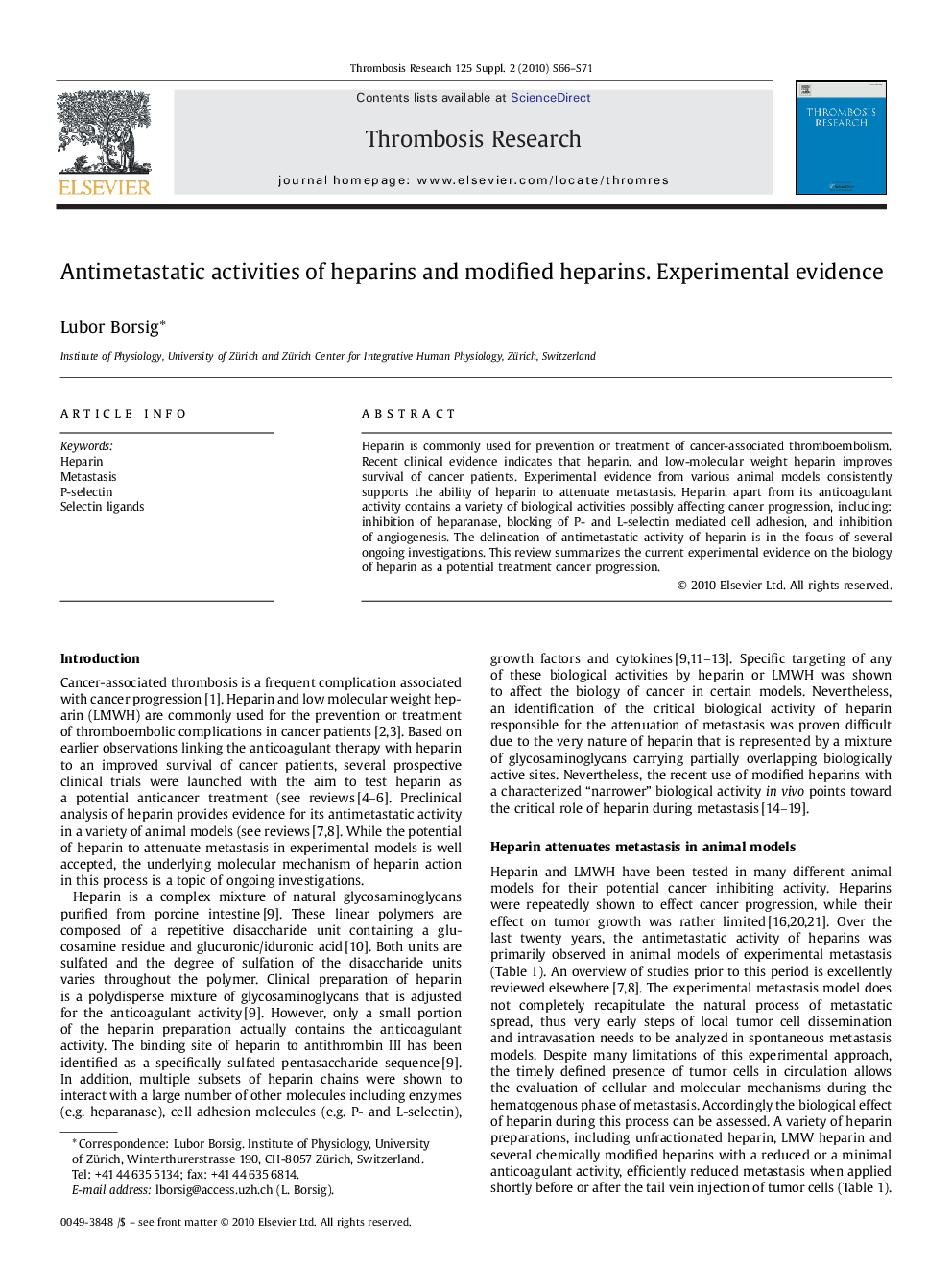| Article ID | Journal | Published Year | Pages | File Type |
|---|---|---|---|---|
| 3027969 | Thrombosis Research | 2010 | 6 Pages |
Heparin is commonly used for prevention or treatment of cancer-associated thromboembolism. Recent clinical evidence indicates that heparin, and low-molecular weight heparin improves survival of cancer patients. Experimental evidence from various animal models consistently supports the ability of heparin to attenuate metastasis. Heparin, apart from its anticoagulant activity contains a variety of biological activities possibly affecting cancer progression, including: inhibition of heparanase, blocking of P-and L-selectin mediated cell adhesion, and inhibition of angiogenesis. The delineation of antimetastatic activity of heparin is in the focus of several ongoing investigations. This review summarizes the current experimental evidence on the biology of heparin as a potential treatment cancer progression.
